What is Analog Flow Meter?
An analog flow meter is a specialized device employed to gauge the rate of fluid flow, be it a liquid or gas, within a system. What sets analog flow meters apart is their ability to provide a continuous and analog output signal, offering real-time data regarding the flow rate. This analog output typically manifests as a voltage signal, often within the ranges of 0-5V or 0-10V, or as a current signal, frequently in the range of 4-20mA. This signal varies proportionally with the fluid's flow rate, making it a valuable tool in various industries and applications.
Types of Analog Flow Meters
Analog flow meters operate based on a variety of principles, employing mechanical, electrical, or other analog techniques to measure flow accurately. Here are some common types of analog flow meters:
Differential Pressure (DP) Flow Meter: This type of flow meter measures flow by generating a pressure differential across a constriction in the flow path and then correlates this pressure difference with the flow rate.
Variable Area Flow Meter (Rotameter): The Rotameter utilizes a tapered tube and a float to measure flow based on the float's position, which varies according to the flow rate. This design provides an analog output signal.
Turbine Flow Meter: Turbine flow meters employ a rotating turbine within the flow stream. The speed of rotation is directly proportional to the flow rate. Turbine flow meters can be used for measuring both liquid (water) and gas flow, offering analog output signals, we use a lot turbine flow meter as analog fuel flow meter, analog diesel flow meter ,analog gas flow meter.
Electromagnetic Flow Meter (Magmeter): This type of flow meter leverages Faraday's law of electromagnetic induction to measure the velocity of conductive fluids, allowing it to calculate the flow rate. Electromagnetic flow meters are capable of delivering analog output signals.
Vortex Shedding Flow Meter: Vortex flow meters gauge flow based on the frequency of vortices shed from a bluff body placed within the flow stream. The resulting signal is analog in nature.
Positive Displacement Flow Meter: These meters divide the fluid into discrete volumes and count the number of these volumes passing through the meter, providing an analog output signal.
Digital vs analog flow meter
Analog flow meters are favored for their simplicity, reliability, and ease of use. They excel in applications where basic flow measurement suffices, and where a continuous analog signal is essential for control or monitoring. However, with the evolution of digital flow meter technologies, digital counterparts have gained prominence. Digital flow meters often feature communication capabilities, such as MODBUS, HART, or Profibus, which enable advanced functionalities like data logging, diagnostics, and remote monitoring. This has led to a growing presence of
digital flow meters in industries and systems that require these enhanced capabilities while still preserving the core function of measuring fluid flow.
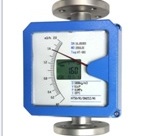
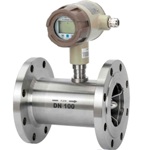
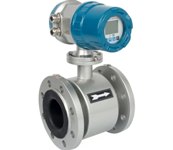
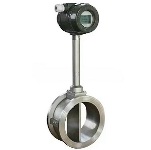
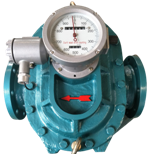
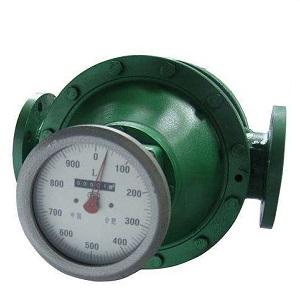 Mechanical register oval gear flow meter2019/07/09Mechanical counter oval gear flow meter is a kind of in-line positive displacement flow meter where main power is impossible in the field or the field only request basic metering, no output transmissi...VIEW
Mechanical register oval gear flow meter2019/07/09Mechanical counter oval gear flow meter is a kind of in-line positive displacement flow meter where main power is impossible in the field or the field only request basic metering, no output transmissi...VIEW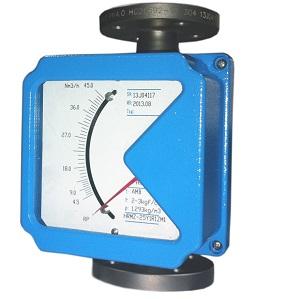 Rotameter flow indicator2020/03/19Rotameter flow indicator is a type of flow meter constructed for industrial measurement of flow rates. Industries that link to liquids and steam are favorite areas of the specifications for a Rotamete...VIEW
Rotameter flow indicator2020/03/19Rotameter flow indicator is a type of flow meter constructed for industrial measurement of flow rates. Industries that link to liquids and steam are favorite areas of the specifications for a Rotamete...VIEW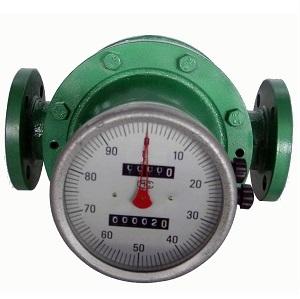 Oval gear flow meter with return to zero counter2019/07/09LC oval gear flow meter is equipped with mechanical counter which could also add with return-to-zero function. This kind of flow meter counter has 2 digits wheels, one for total flow totalizing; anoth...VIEW
Oval gear flow meter with return to zero counter2019/07/09LC oval gear flow meter is equipped with mechanical counter which could also add with return-to-zero function. This kind of flow meter counter has 2 digits wheels, one for total flow totalizing; anoth...VIEW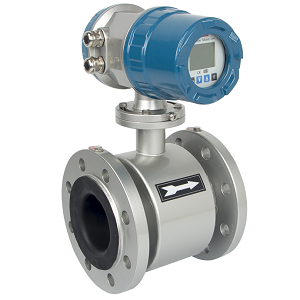 Electromagnetic water flow meter2022/04/01Electromagnetic water flow meter overveiwElectromagnetic water flowmeter is a flow measurement instrument made by Faraday's law of electromagnetic induction to measure the volume flow of conductive wa...VIEW
Electromagnetic water flow meter2022/04/01Electromagnetic water flow meter overveiwElectromagnetic water flowmeter is a flow measurement instrument made by Faraday's law of electromagnetic induction to measure the volume flow of conductive wa...VIEW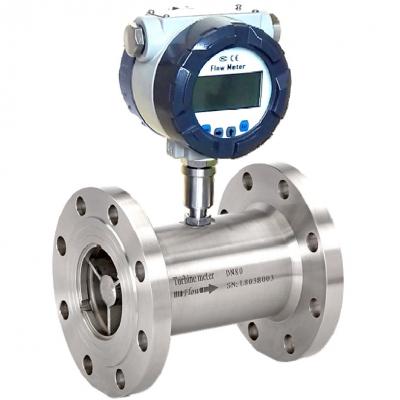 Liquid Turbine Flow Meter2017/04/12Liquid Turbine flow meter is a kind of low cost digital flow meter for diesel ,petrol,water,palm oil. it is for clean, low viscosity ,non-corrosive liquid.VIEW
Liquid Turbine Flow Meter2017/04/12Liquid Turbine flow meter is a kind of low cost digital flow meter for diesel ,petrol,water,palm oil. it is for clean, low viscosity ,non-corrosive liquid.VIEW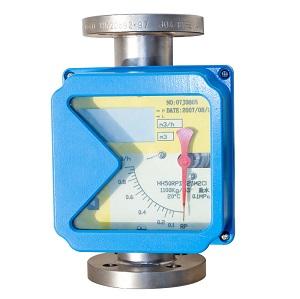 Metal Tube Rotameter2017/04/12HH5 Variable Area flow meter is Metal Tube Rotameter, get price now for digital rotameter,flow indicator rotameter.VIEW
Metal Tube Rotameter2017/04/12HH5 Variable Area flow meter is Metal Tube Rotameter, get price now for digital rotameter,flow indicator rotameter.VIEW